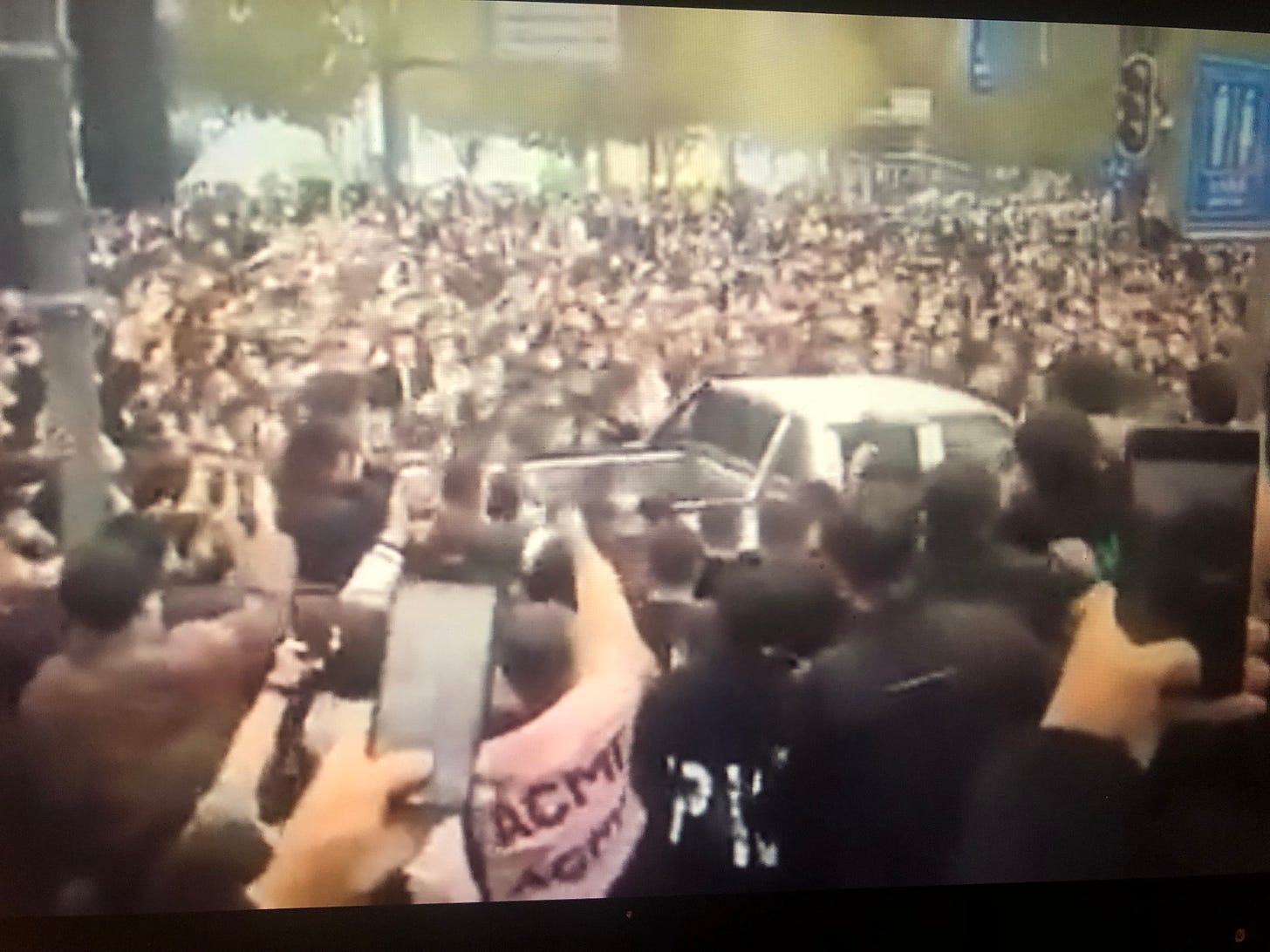LINK TO RAPPOPORT HERE.
And a few Tweets.
Note: I can’t vouch for everybody whose tweets I share. Together we can weigh and discern. I chose those that stood out to me.

Protests in China are not rare. What *is* rare, are multiple protests over the same issue, at the same time, across the country. The protest below, apparently in central Beijing’s liangmaqiao, is astounding
#China #protests

Families in a hi-rise in China were locked into their apartments as their building caught fire. Urumqi, in Xinjiang Province
They burned alive as they couldn't escape and no one could get to them in time
This is directly on the CCP and Xi's Zero-Covid lockdown strategy
Jon Rappoport is a friend and ally of this “war of continuation” (we were both HIV dissent writers in 80s, when Jon published AIDS Inc: Scandal of The Century) since the 1980s. I am an admirer equally of his writings and his broadcasts. Each outstanding. One of the many things I like so much about Jon’s broadcasts is the way he uses time, (as well as cadence,) (and humor.) It distinguishes him from almost all broadcasters working today.
Xi’s Last Slaves: Young Chinese Refusing To Reproduce

My bro is a pilot who flies to China a lot and sent me this:
Proficient English speaking Chinese man got on board in a suit and told me:
"We're all slaves here. The younger generation knows they are slaves, but they will not reproduce. They said they will be Xi's last slaves."

Now they’re finally awake to the Zero Covid catastrophe in China, the BBC, Sly News, CNN and C4 should apologise for their demonisation of the brave freedom fighters who marched against lockdowns in the UK and the West.
They were not conspiracy theorists, they were right.
Free for all to listen: RAPPOPORT LINK HERE.








China tried to enslave the world. Now the Chinese will free the world, or at least show the world that locking innocent people up is not the right thing to do. Thanks for sharing, and thanks to Rapoport.
If the CCP and Globalists get their way, this is coming to America. Americans need to be methodically coaxed into Techno Slavery. Like slowly boiling frogs alive. Hopefully enough Americans jump out of the pot before it’s too late. The Chinese People have little to oppose the Xi Regime except pure numbers and courage. I pray for the Chinese People.